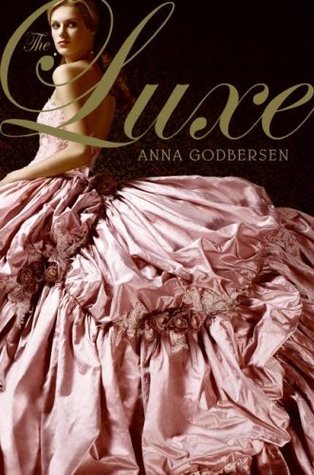Title: Nine Parts of Desire: The Hidden World of Islamic Women
Published: December 1st 1995 by Anchor
ISBN: 0385475772 (ISBN13: 9780385475778)
As some of you read this review, you'll probably wonder why it sounds so much more formal compared to my regular reviews and why it's so long. Well, to answer your possible questions, it's an essay for my AP World History class, and since I've been doing nothing but read this book and write this essay, I don't really have anything else to post this week...so enjoy!
Muhammad, the founder and prophet of Islam, received his first revelation from God after his first wife, Khadija, passed away. He was told, “Men are in charge of women, because God has made the one of them to excel the other, and because they spend of their property [to support them].” Then after, he was told, “Marry of the women, who seem good to you, two or three or four; and if ye fear that ye cannot do justice [to so many] then one [only]." However, Muhammad himself was the exception to this rule and took up eight or nine wives. Each of the wives was scrutinized by those against the new religion, and soon there jealousy grew against the prophet’s favorites. Because of this, Muhammad received another revelation from God telling him to seclude his wives and stay concealed in their rooms; they could only go out when they were completely covered. Soon the rules applied to the prophet’s wives spread to other Muslim women.
While Brooks didn’t have much to say about Saudi Arabia, she explains other countries aren’t always so restricted. In the United Arab Emirates there are women soldiers, and in Iran, women have been voted into Parliament. While Pakistan is the first Islamic country to elect a woman prime minister, Turkey has both a female economist and prime minister, and within Bangladesh, there is a woman prime minister and leader of the opposition.
Geraldine Brooks poses the question, “Islam did not have to mean oppression of women. So why were so many Muslim women oppressed?” It is not necessarily the religion of Islam that represses women, but rather it is the varying interpretations of the Islamic religion that create different cultural and political influences. For instance, many people assume genital mutilation in order to preserve a girl’s chastity is solely an Islamic practice, but in reality, Christians also do this. It is not either religion that sanctions this act, but occurs because it is a traditional African practice.
While genital mutilation is influenced by cultural traditions, it is the political influences in that deny women the right to stay in a hotel room without a husband, the right to drive a car, and the right to an education. Few girls are given the opportunity to an education and only because if parents are able to afford it, and the literacy rates in Saudi Arabia show this. By 1980, while 62% of men were literate, only 38% of women were literate. While countries have made strides in women suffrage, but there is still much work to be done.
Rana Kabbani, a Muslim woman wrote, “I am always pained by Western misconceptions about the lives of Muslim women. Western ignorance is often inseparable from a patronizing view that insists on seeing us as helpless victims, while hardly distinguishing between the very different cultures we come from.” While there is injustice towards women, they should not be considered weak. Despite everything that keeps females from doing what they want, they still manage to find ways to accomplish their goals. Because of the restrictions of the hijab, many women living in Islamic countries cannot compete in the Olympics. So in 1993, the first Islamic Women’s Games were to take place in Tehran. This alternative gives Muslim females the chance to do sports they wouldn’t be able to do otherwise.
When Emirates’ Muslim authorities were against recruiting women soldiers, they pointed out Nusaybah, a woman soldier who saved Muhammad’s life on the battlefield when all the men had run off. Soon a ragtag group of 74 women were chosen from over 1,200 applications. United States female specialists from Fort Bragg were to run a basic training course for these women. None of these women had been physically active, and were brought up to “lower their gaze and be modest,” so it was an immense change for them to learn to look their officers in the eye and go through four mile runs. Because of their accomplishments, some Emirates officers found it hard to acknowledge their success. Lieutenant Colonel Mohamed Nasser, the commander of the academy, could not believe the shooting scores, and ordered the women to redo the test on the men’s shooting range. He was surprised to see each woman shoot with such precision that each bullet hit dead center of the target.
For years, Geraldine Brooks observed the lives of Muslim women. She sheds light on the injustice towards women in the world, but she also shows women who carry out their ambitions despite all the obstacles in the Islamic lifestyle. Whether that is to become a politician, or an athlete, or a soldier, these women pave the path for others to follow.
Finally finished!
Book Nerd and Proud,
C.J.










